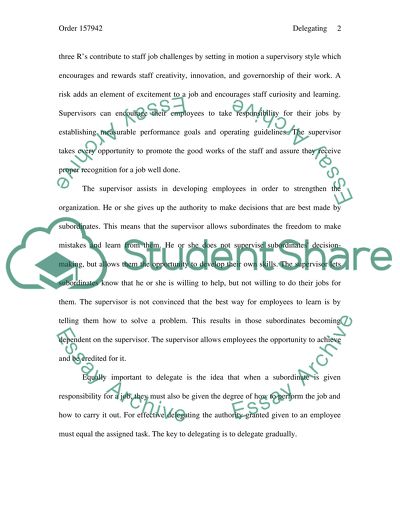Cite this document
(“Delegating Essay Example | Topics and Well Written Essays - 1000 words”, n.d.)
Retrieved from https://studentshare.org/miscellaneous/1505209-delegating
Retrieved from https://studentshare.org/miscellaneous/1505209-delegating
(Delegating Essay Example | Topics and Well Written Essays - 1000 Words)
https://studentshare.org/miscellaneous/1505209-delegating.
https://studentshare.org/miscellaneous/1505209-delegating.
“Delegating Essay Example | Topics and Well Written Essays - 1000 Words”, n.d. https://studentshare.org/miscellaneous/1505209-delegating.


